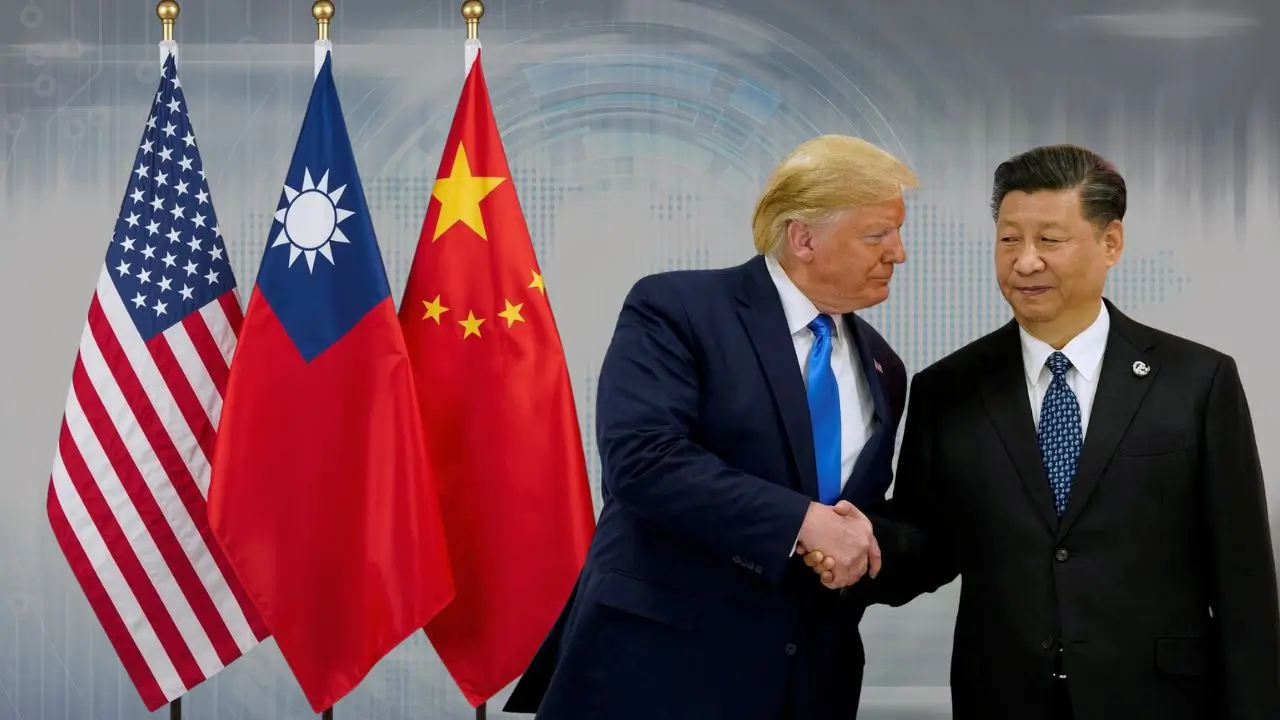Share
President Trump Says Xi Jinping Pledged No Action on Taiwan During His Term
03 tháng 11 2025
U.S. President Donald Trump stated that Chinese President Xi Jinping assured him Beijing would not act against Taiwan while he remains in office, highlighting a new dynamic in U.S.-China relations amid growing regional tension.

Trump Says Beijing Gave “Assurance” on the Taiwan Question
In remarks drawing global attention, U.S. President Donald Trump claimed that Chinese President Xi Jinping assured him China would take no military or political action against Taiwan during his current term.
The statement was made in an interview with CBS’s “60 Minutes”, recorded at Trump’s Mar-a-Lago resort in Florida and scheduled to air later this weekend.
According to Trump, although Taiwan was not a direct topic during his recent meeting with Xi in South Korea, he is confident that Beijing understands the consequences of any move to alter the status quo.
“He’s said it openly, and his people have confirmed it — they would never do anything while President Trump is in office, because they know the consequences,” Trump said.
China Responds Firmly, Reiterates Core Principles
Beijing has not confirmed Trump’s statement.
Liu Pengyu, spokesperson for the Chinese Embassy in Washington, declined to comment on the alleged assurance but emphasized:
“The Taiwan question is China’s internal affair and the core of its core interests. No force will ever separate Taiwan from China.”
The statement underscores Beijing’s longstanding position that reunification is inevitable — and force remains on the table if peaceful means fail.
Taiwan: The Central Flashpoint of U.S.-China Rivalry
Taiwan remains a focal point of great-power competition. The island is self-governed but claimed by Beijing as part of its territory, while Washington maintains robust unofficial ties and security support under the 1979 Taiwan Relations Act.
When asked if the United States would defend Taiwan militarily, Trump offered a characteristic reply:
“You’ll find out if it happens — and he (Xi) understands the answer.”
This aligns with the U.S. policy of strategic ambiguity, designed to deter both Chinese aggression and Taiwanese independence.
Trump’s Strategy: Deterrence Through Strength
President Trump has adopted a firm but pragmatic approach toward China. His administration continues to provide advanced defense technology to Taiwan while keeping channels open for trade and security dialogue with Beijing.
Analysts describe Trump’s remarks as a dual-purpose diplomatic maneuver — deterring Beijing while reinforcing his global image as a leader who commands stability through strength.
“Trump is positioning himself as the only leader capable of restraining China,” noted Bonnie Glaser of the German Marshall Fund.
Global Reaction: Cautious but Concerned
Taipei has not commented officially, though observers warn that Trump’s claim could complicate regional dynamics.
While some see it as a temporary de-escalation, others worry it signals uncertainty in America’s commitment to Taiwan.
The Financial Times noted that revealing a “private diplomatic understanding” could erode trust between Washington and Beijing, while Asian allies such as Japan and South Korea are watching closely for signs of a U.S.-China backchannel over Taiwan.
Beijing Maintains Its Stance: “Reunification Cannot Be Stopped”
Despite Trump’s assurance, China’s rhetoric remains firm.
A Global Times editorial stated:
“No force can obstruct the historic process of China’s reunification.”
Military expert Zhou Bo added:
“Delaying action doesn’t mean abandoning the goal — it’s about choosing the right timing.”
The comment reflects Beijing’s strategy of measured patience, avoiding immediate confrontation while keeping long-term objectives intact.
Implications for U.S.-China Relations
If Trump’s statement proves accurate, it could temporarily ease cross-strait tensions, yet add new layers of uncertainty to bilateral relations.
Experts suggest Trump may use Taiwan as leverage in negotiations over trade, technology, or regional security.
Still, the move raises questions:
Would Washington maintain its strategic ambiguity, or would Trump pursue a stability-for-leverage approach with Beijing?
FAQs
1. Did Trump really receive an assurance from Xi Jinping about Taiwan?
There has been no official confirmation from Beijing or the White House. China only restated its opposition to any attempt to separate Taiwan from the mainland.
2. Does this assurance carry legal weight?
No. The statement is considered an informal diplomatic claim, not a binding agreement.
3. Has U.S. policy toward Taiwan changed?
Not officially. Washington still adheres to its “strategic ambiguity” approach — supporting Taiwan’s defense without committing to direct intervention.
4. What impact could Trump’s statement have on Asia-Pacific security?
Regional powers like Japan and South Korea are watching closely. Any tacit U.S.-China understanding could alter the strategic balance in the Indo-Pacific and redefine regional defense frameworks.
All information on our website is for general reference only, investors need to consider and take responsibility for all their investment actions. Info Finance is not responsible for any actions of investors.







